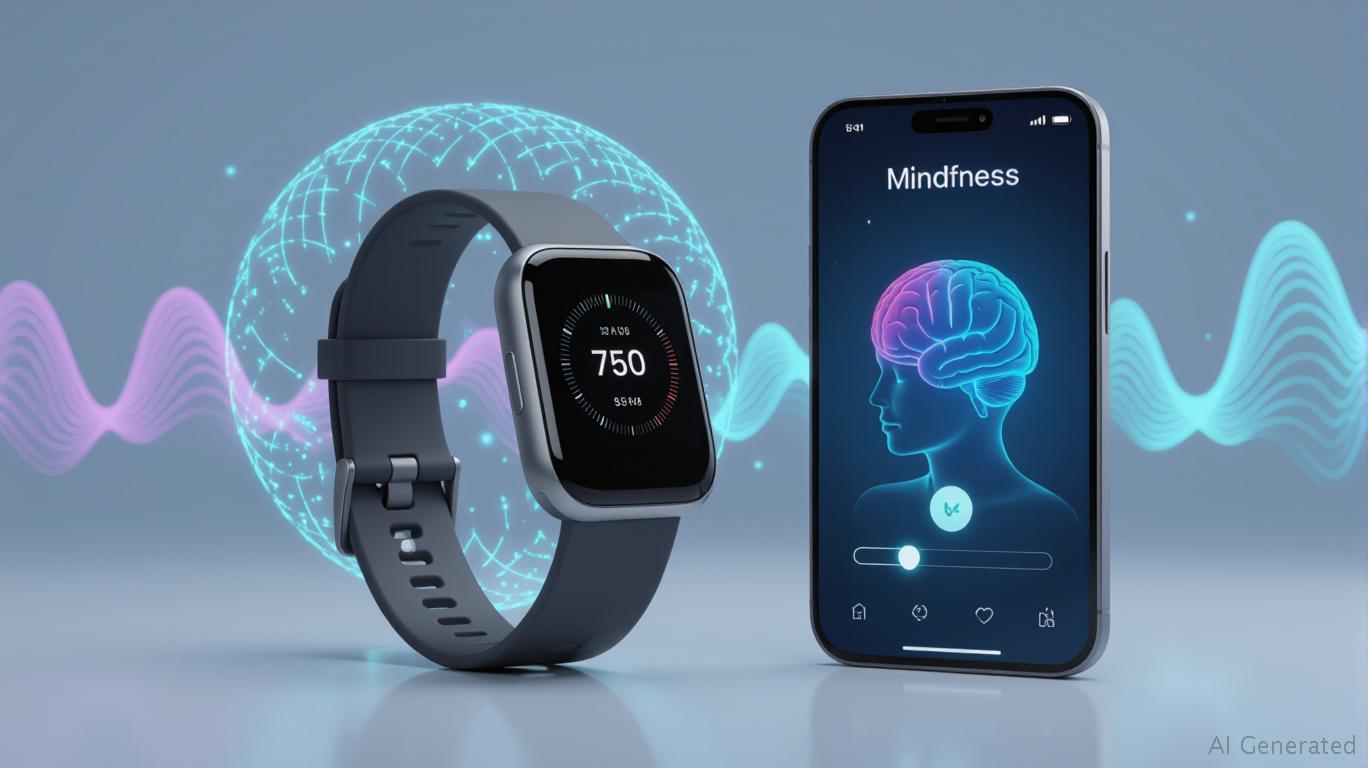Key Takeaways
- The mental health technology market is projected to reach $32.97 billion by 2032, driven by innovations in emotional regulation tools.
- Companies are developing AI-driven diagnostics, wearable devices, and teletherapy solutions to address the global mental health crisis.
- Investors focus on opportunities in telehealth and digital therapeutics while facing challenges like data privacy and stigma.
Understanding the Pressure Cooker of the Global Economy
The global economy is increasingly stressing individuals, spurred by inflation and the demands of digital work. Neuroscientists reveal the “90-second rule,” suggesting that emotional responses last only 90 seconds unless mentally engaged, leading to prolonged stress. This insight has prompted a rush in the mental health tech sector to develop tools aimed at breaking this cycle, with market growth projected to hit $32.97 billion by 2032.
Advancing Emotional Regulation
The relevance of the 90-second rule emphasizes that emotional regulation is not merely about maintaining calm but also about reprogramming the brain’s responses. Companies like Feel Therapeutics, with FDA-approved wearable stress monitors, and Mightier, which offers gamified emotional management for children, are at the forefront. Their innovations utilize physiological signals, delivering real-time interventions that convert the 90-second emotional window into valuable learning moments.
The Expanding Mental Health Tech Market
Mental health tech has expanded beyond niche applications. Businesses like Talkspace and Lyra Health have established billion-dollar enterprises through digitized therapy. The digital therapeutics sector’s value is expected to rise from $7.13 billion in 2023 to $30.62 billion by 2034, propelled by AI’s ability to customize care. Employers are seizing the opportunity to provide platforms like Modern Health and Spring Health, which assess employee mental health and offer personalized solutions.
Outlook for Investors
Investors are encouraged to explore three key innovation areas:
1. **AI-driven diagnostics** like the Mental Health Digital Twin from Ontrak Inc., which employs predictive analytics for relapse forecasting.
2. **Wearables and biofeedback**, exemplified by Feel Therapeutics and Sööma.
3. **Scalable teletherapy solutions** from companies like Teladoc Health and Meru Health.
Despite the promising growth, challenges remain—data privacy issues are prominent, particularly with platforms handling sensitive information. Regulatory scrutiny is intensifying, as seen with stringent GDPR requirements in the EU. Additionally, addressing stigma in developing markets is essential, although culturally tailored apps like Intellect are making progress.
Investment Potential
For investors interested in the mental health tech sector, there are various avenues to consider. Stock options include Teladoc Health and Lyra Health, while ETFs like the Global X Mental Health Tech ETF (MHTE) represent a diversified investment strategy. Furthermore, venture funds targeting startups integrating AI with neurotechnology, such as Kintsugi and MentalHappy, may provide promising future returns.
Overall, as the market for mental health technology continues to grow, the pressing question remains: Can technology effectively surpass the innate stress responses of the human brain? Current trends indicate that the answer may be yes, marking a significant shift in healthcare dynamics with substantial implications for investors.
The content above is a summary. For more details, see the source article.















